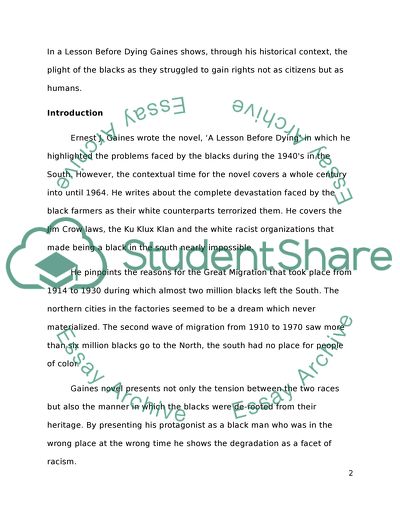Cite this document
(“A Lesson Before Dying by Ernest Gaines Book Report/Review”, n.d.)
Retrieved from https://studentshare.org/miscellaneous/1514166-a-lesson-before-dying-by-ernest-gaines
Retrieved from https://studentshare.org/miscellaneous/1514166-a-lesson-before-dying-by-ernest-gaines
(A Lesson Before Dying by Ernest Gaines Book Report/Review)
https://studentshare.org/miscellaneous/1514166-a-lesson-before-dying-by-ernest-gaines.
https://studentshare.org/miscellaneous/1514166-a-lesson-before-dying-by-ernest-gaines.
“A Lesson Before Dying by Ernest Gaines Book Report/Review”, n.d. https://studentshare.org/miscellaneous/1514166-a-lesson-before-dying-by-ernest-gaines.


